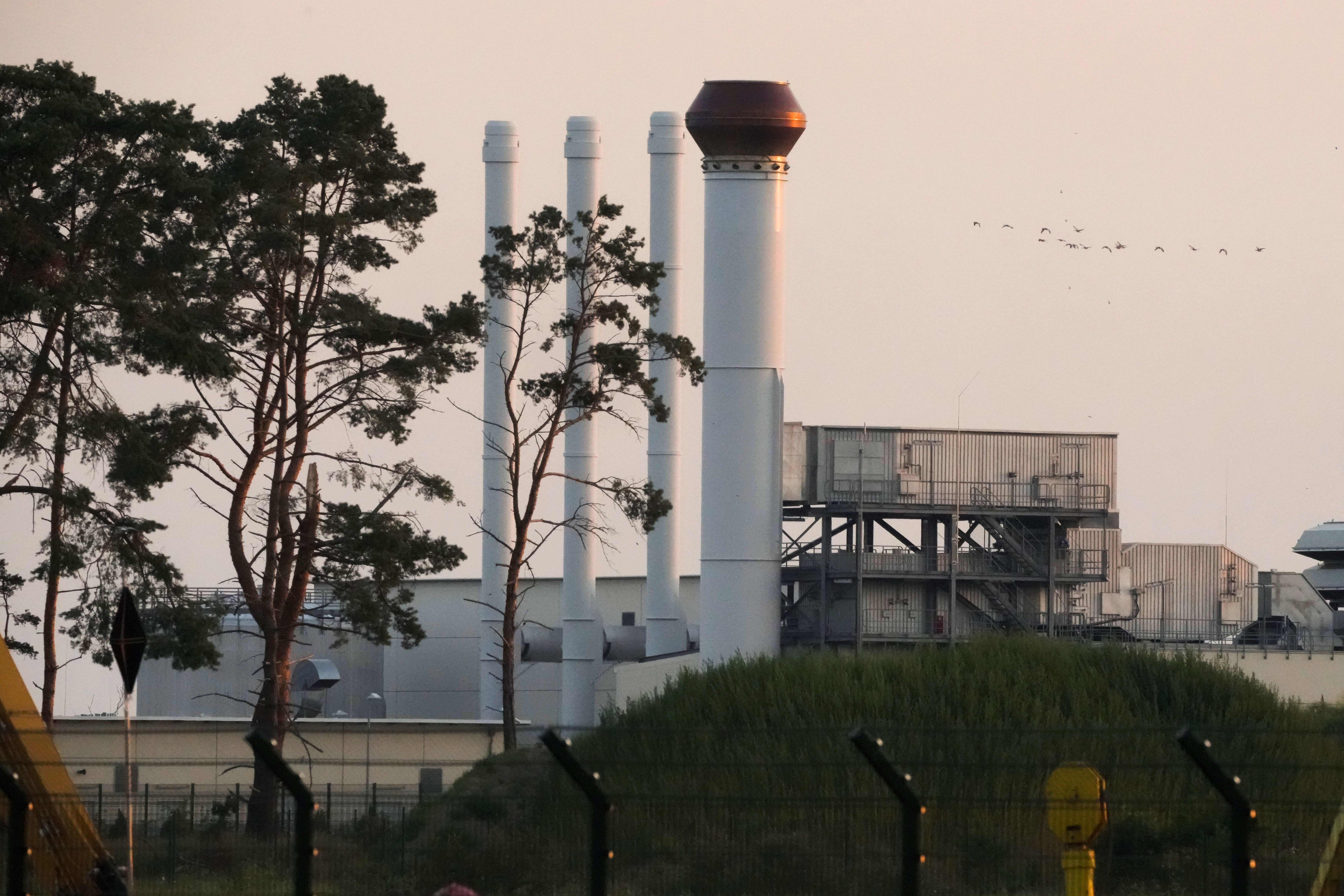Nord Stream pipeline halted for 3 days due to maintenance: Gazprom
Maintenance is set to begin on August 31 and expected to end on September 2.
-

This photo shows the landfall facility of the Nord Stream 1 Baltic Sea pipeline and the transfer station of the OPAL gas pipeline, the Baltic Sea Pipeline Link, in Lubmin, Germany, Thursday, July 21, 2022 (AP Photo/Markus Schreiber)
Russian gas deliveries to Europe through the Nord Stream pipeline will cease from August 31 to September 2 for "maintenance", Russian energy giant Gazprom said Friday, raising the prospect of energy shortages in Europe.
"It is necessary to carry out maintenance every 1,000 hours" of operation, Gazprom said in a statement.
"On August 31, 2022, the only Trent 60 gas compression unit will be stopped for three days for maintenance" involving technicians from Germany's Siemens, Gazprom said.
As a result, "gas transportation through the Nord Stream pipeline will be suspended for three days".
At the end of this period, deliveries will be restored to a flow of 33 million cubic meters of gas per day, Gazprom said.
Read more: Gas prices in Europe Increased 6x year-on-year in June: Commissioner
News of the decision risks reviving fears of shortages in Europe, which has already accused Moscow of energy blackmail.
After Gazprom announced that deliveries through the Nord Stream pipeline would be suspended from August 31 to September 2 owing to maintenance work, the Dutch TTF Gas Futures contract spiked to a closing high of 257.40 euros ($258.30), raising concerns about energy shortages this winter.
Since Western countries imposed sanctions on Moscow after it launched its offensive against Ukraine, Moscow has repeatedly cut gas deliveries to Europe, which is heavily dependent on Russian supplies.
Signs that Iran is nearing a nuclear deal added to the downward pressure on prices, with an agreement expected to allow the country to resume global oil supplies.
Analysts believe Tehran would deliver 2.5 million barrels per day, delivering a much-needed boost to supplies that have been impacted by sanctions imposed on Russia.
Libya has also raised output, prompting prices to slump to six-month lows and erasing gains gained before the Ukraine conflict. Analysts, however, warned that, given the upcoming US elections, an agreement with Iran could still be a long way off.
"A deal with Iran would likely not be popular with US voters and so is hard to envisage before the November mid-terms," said National Australia Bank's Ray Attrill.
"Markets are currently prone to optimism, though, and hopes for a deal... have added to downward pressure on oil prices."
Read more: Greenhouse gas emissions up 6% in EU compared to 2021

 3 Min Read
3 Min Read








